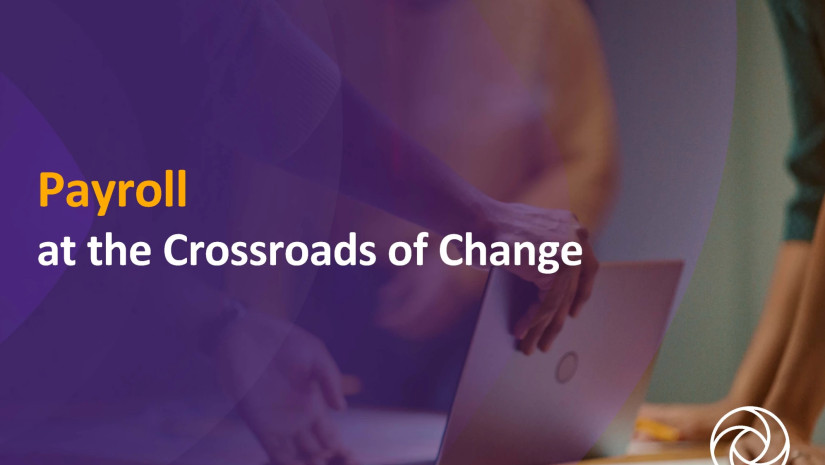Payroll at the Crossroads of Change
Natia Mzhavanadze, Payroll lead, Grant Thornton Georgia
Payroll, once seen as a purely technical function, has evolved into a data-driven strategic platform. It now integrates financial, legal, and human resources dimensions, directly influencing a company’s stability and employee trust.
In our first article, we explored the essence of payroll—its historical roots, evolution, and the critical role it plays today in business transparency and operational resilience.
Now, let’s examine how organizations respond to the modern challenges of payroll. What technological, legal, and human factors shape today’s reality? And most importantly—what should companies expect in the future?
Modern Challenges: A Reality That Changes Daily
In today’s fast-moving business environment, managing payroll is a continuous process of adaptation. Challenges are multifaceted: regulations evolve, employee expectations rise, and technology constantly redefines standards. Companies must respond not only to internal processes but also to external pressures—be it labor inspections, data protection requirements, or market demands.
To meet these challenges, more companies are turning to outsourcing—entrusting payroll to specialized service providers. This approach allows them to replace a single internal specialist with the collective expertise of a multidisciplinary team. That team combines payroll, tax, and legal professionals with deep knowledge of local regulations and experience in international practices.
Payroll outsourcing helps organizations minimize legal and operational risks while allowing leadership to focus on growth rather than administrative detail.
At Grant Thornton, we believe payroll can only be effective when it continuously adapts to regulatory change. Our specialists closely monitor legislative updates and emerging trends to ensure that all stakeholders make informed decisions based on the latest data. This approach creates an environment where payroll is not only accurate and compliant, but also predictable and strategically aligned.
The quality of payroll services also depends on how successfully international experience is merged with local legislation. We apply global standards and adapt them to local realities, developing tailored payroll policies and internal guidelines for each company—ensuring structure, stability, and legal protection.
We’ve already discussed the expanded mandate of the Labor Inspection Office. For us, readiness for audits is not a one-time effort but a systemic standard. Our multidisciplinary team ensures that the entire payroll cycle complies with legislation—from employment contracts and precise salary calculations to documentation management, payments to employees’ personal accounts, and the secure delivery of encrypted payslips to individual emails.
Recently, we highlighted one of the most important components of the payroll process—the payslip. This document provides employees with a transparent view of how their salary is calculated and why they receive a specific amount. It details all components of compensation—accruals, deductions, and the final payable sum. The payslip has become a communication tool that strengthens trust and employee satisfaction.
Data confidentiality in the payroll process is not merely a technical requirement—it is an ethical and legal obligation that defines both trust and system reliability. Every stage of data collection, storage, and processing must be guided by clear rules. Encryption, access control, and continuous monitoring are essential to ensure compliance with both local law and international standards such as the GDPR. Payroll data security must be embedded into every phase of the process—it cannot be treated as an afterthought.
Payroll is no longer an administrative function—it is an analytical platform that enables companies to manage human capital through data. Modern HR analytics provides an integrated view and transforms numbers into strategic insight. These data points no longer sit passively in archives—they speak: revealing trends, costs, efficiency, and risks. Through analytical reporting, companies can forecast, identify issues early, and manage them proactively. Modern payroll analytics empowers organizations to make informed, data-driven decisions—especially critical in a volatile economic environment.
What Lies Ahead?
In Georgia’s constantly evolving market, payroll has become a living system—one that develops, refines, and transforms daily. Against this backdrop, demand for professional payroll services is steadily increasing. More organizations are recognizing that payroll is not simply part of accounting—it requires its own structure, technological backbone, and legal precision.
The growing complexity of regulations, the enforcement of GDPR, and the expansion of employee rights have already made the separation of payroll from accounting a necessity in developed economies. Georgia is following the same path, making the establishment of payroll as an independent service inevitable.
Companies must remain agile and prepared to keep pace with change—whether that involves new labor regulations, inspections, or rising employee expectations. An emerging trend is that employees themselves are driving this evolution: they now demand transparent, flexible, and reliable compensation systems that meet modern standards.
Payroll is no longer a concept of the future—it is a present-day reality that every organization must embrace to remain trusted, resilient, and successful.



















